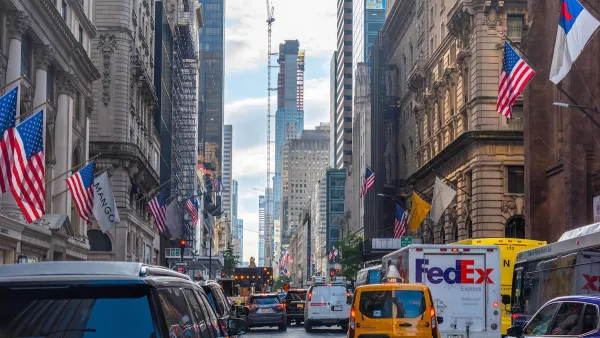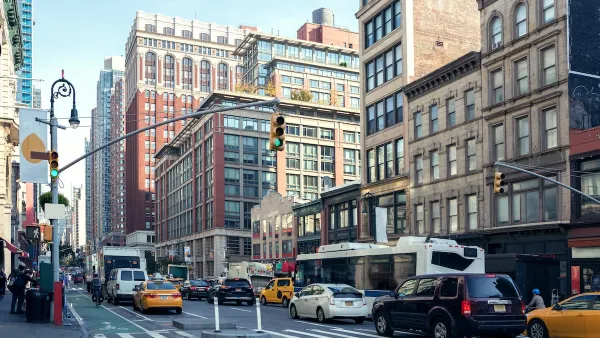Congestion pricing is really just a regressive tax thats hurt the poor, argues one New York Assemblyman. If government wants to improve transit and the environment, it should simply tax wealthy Americans more to do it.
"[T]he assault in Albany against the Bloomberg plan was led by...Assemblyman Richard L. Brodsky, whose father, it is worth noting, was an organizer for an engineers' union and whose mother worked in the 1948 Progressive Party campaign of Henry Wallace. They reared their son with the principles of the Progressive movement. Thus Mr. Brodsky, 61, in an interview at his Colonial-era home here, said he had long opposed "pricing mechanisms as the preferred way of solving social problems." The reason: these schemes put the burden for paying the fees on blueblood and blue collar alike, he said.
"I don't believe public places should be distributed based on an ability to pay," Mr. Brodsky said, stretching his suede cowboy boots out from his armchair while sipping a glass of tea. "In the end I'm a progressive before I'm an environmentalist."
However far Mr. Brodsky - or for that matter his entire '60s generation - may have strayed from younger, idealistic stirrings, combating traffic congestion with fees has for more than a decade seemed to him, well, regressive. The people who would have borne the brunt were working- and middle-class stiffs in Brooklyn, Queens and the Bronx who for whatever reason feel they need to take a car into the area below 60th Street on workdays."
""These pricing mechanisms try to modify behavior of people who can't afford to do what it is we want them to do," he said."
"There's a fair argument to be made that we already have pricing mechanisms - subway fares and bridge tolls - that burden rich and poor alike. But opponents like Mr. Brodsky say that if a relatively novel twist like congestion pricing succeeds, governments desperate for money could start charging people for taking a walk in a city park or entering a library."
FULL STORY: Congestion Pricing: Just Another Regressive Tax?

Maui's Vacation Rental Debate Turns Ugly
Verbal attacks, misinformation campaigns and fistfights plague a high-stakes debate to convert thousands of vacation rentals into long-term housing.

Planetizen Federal Action Tracker
A weekly monitor of how Trump’s orders and actions are impacting planners and planning in America.

Chicago’s Ghost Rails
Just beneath the surface of the modern city lie the remnants of its expansive early 20th-century streetcar system.

Bend, Oregon Zoning Reforms Prioritize Small-Scale Housing
The city altered its zoning code to allow multi-family housing and eliminated parking mandates citywide.

Amtrak Cutting Jobs, Funding to High-Speed Rail
The agency plans to cut 10 percent of its workforce and has confirmed it will not fund new high-speed rail projects.

LA Denies Basic Services to Unhoused Residents
The city has repeatedly failed to respond to requests for trash pickup at encampment sites, and eliminated a program that provided mobile showers and toilets.
Urban Design for Planners 1: Software Tools
This six-course series explores essential urban design concepts using open source software and equips planners with the tools they need to participate fully in the urban design process.
Planning for Universal Design
Learn the tools for implementing Universal Design in planning regulations.
planning NEXT
Appalachian Highlands Housing Partners
Mpact (founded as Rail~Volution)
City of Camden Redevelopment Agency
City of Astoria
City of Portland
City of Laramie





























